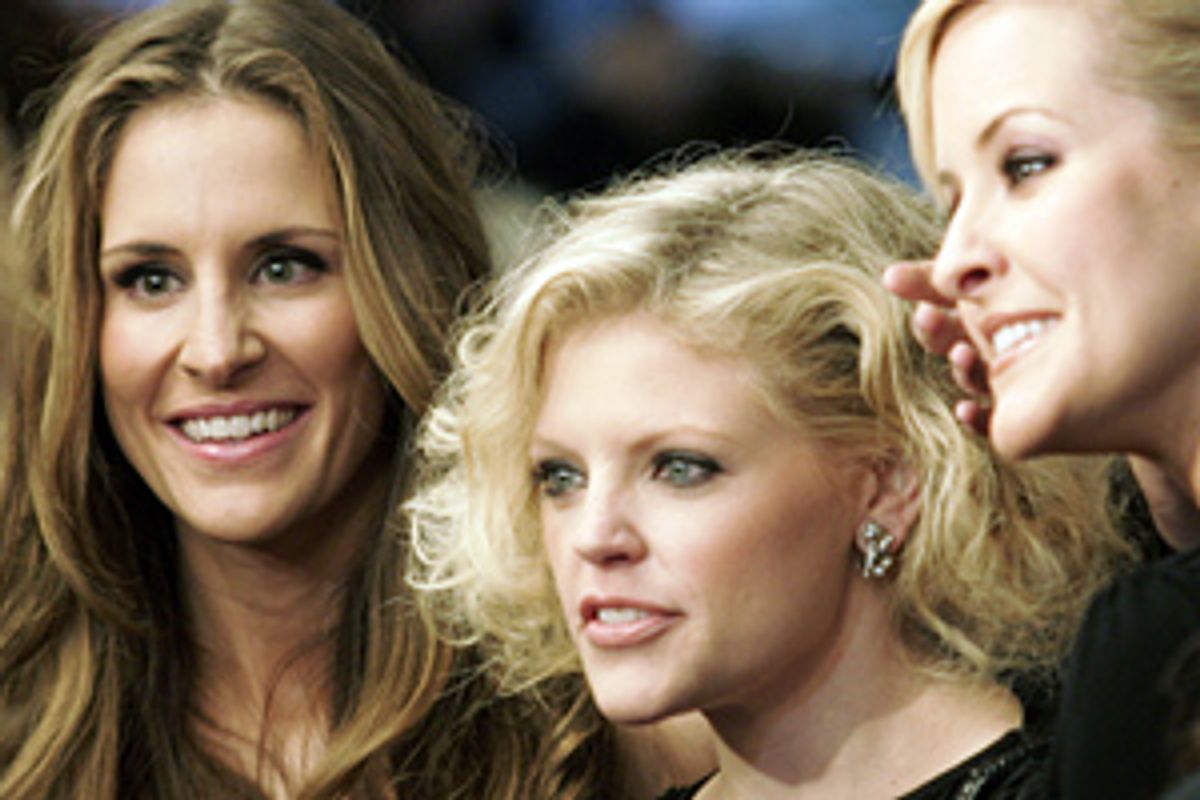Everyone loves a winner, but sometimes even a loser grabs the kind of attention money just can't buy. Darren Aronofsky's "The Fountain" -- the filmmaker's first movie in six years -- was reportedly booed at the Venice Film Festival when it played there last week. Apparently, many of us in Toronto wanted to know what all the hooting was about, which made the lines for the first press screening of the film inordinately long. I just squeaked in, nabbing one of the last five seats in the theater, in the very first row. I was so close to Hugh Jackman's face, I felt as if I could go spelunking in his pores.
Part historical fantasy, part lovers-separated-by-death weeper, part New Age fever dream, "The Fountain" isn't truly horrible, just very, very silly. When Jackman plunges his dagger into the hairy bark of the Tree of Life, a viscous, milky substance trickles out -- the source of all life! Best to have a tissue handy for this kind of thing. Jackman plays a doctor-researcher type who's desperately trying to shrink a tumor in a lab monkey's head. But before that, he's a Spanish guy around the time of the Inquisition, fending off savages with pointy teeth in a battle sequence that's like "Lord of the Rings" lite. And in between, he's a bald guy meditating; occasionally, he takes a break to eat some of that magic tree bark.
Jackman is tortured because somehow -- and we don't know exactly how at first, although we can guess -- he has failed his wife, played by Rachel Weisz. Weisz has the unfortunate task here of having to play the role of noble queen, both literally and figuratively: She plays both an Inquisition-era ruler who's being persecuted for being a heretic and a doctor's wife who's not so much loved by her husband as merely adored. (Weisz is married to Aronofsky in real life, which perhaps explains the very high pedestal he's got her perched on.) Weisz is a terrifically gifted actress, but you wouldn't know it here, at least partly because of the wackadoo dialogue she's stuck delivering. When she gives her husband a gift of a fountain pen and ink -- the camera shows us clearly what the items are -- she adds narration for extra punch. "Pen and ink," she says. And then she adds, helpfully, "For writing" -- just in case we're not clear on the concept.
Aronofsky can't just show; he also has to tell. And then tell again. He seems to be trying to fashion an intensely romantic fable, but the picture feels dried out and leaden. (It looks that way, too: Shot by Matthew Libatique, who also shot Aronofsky's earlier features "Requiem for a Dream" and "Pi," the picture has a dehydrated, grayed-out demeanor.) No one in the audience booed at "The Fountain," but I wonder if that's because we were just too sapped to bother. There has got to be a better way to get your audience thinking about eternal life than making them feel they just sat through it.
* * *
In Kevin Macdonald's "The Last King of Scotland," based on Giles Foden's novel, Forest Whitaker doesn't so much play Idi Amin as slip into his skin. He incites dread even as he radiates charm -- his charisma is as bright and buffed as the medals that march across his strapping chest. You can see how people, for a time, at least, might have believed in him without ever quite trusting him.
This is a bold, unnerving performance, and the one given by James McAvoy (who played Mr. Tumnus in "The Chronicles of Narnia), as the young Scottish doctor who becomes Amin's personal physician and confidant, certainly stands up to it. Macdonald navigates some tricky territory here. The movie begins with unabashed jauntiness, showing the young doctor first arriving in Uganda from Scotland and being overly, indiscriminately impressed with Amin's oratory skills. Then it wends its way toward a tense, disturbing climax.
Macdonald doesn't shy away from showing torture in pretty graphic detail, and I'm not sure that necessarily serves the movie: He might have gotten the point across just as effectively with a little judicious stylization. Still, he steers his way through the movie's drastic tone shifts with remarkable ease. The picture, a blend of fact and fiction, attempts to sum up the price of political, and youthful, naiveté, even as it puts a human face on a tyrant. When that face is Whitaker's, there's no turning away from it.



Shares